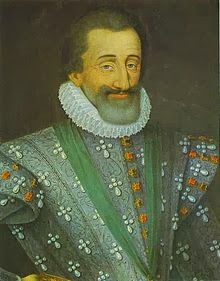World War II goes down in history as one of, if not the most famous wars ever fought. It is common knowledge that Adolf Hitler was the main antagonist during the fighting. He was the Führer of Germany, and is notorious for his unspeakable acts of persecution against the Jews. However, with his horrible actions aside, he also provided some positives for the country of Germany. He strengthened Germany’s infrastructure, and slashed the unemployment rate drastically. He was also an amazing public speaker, and could win the hearts of those listening to his sly persuasions. It is fair to call Hitler an evil genius. But, with further investigation, Hitler may not seem as genuine as you would think. The actions he has committed in his lifetime correlate closely to those of some unlikely suspects. During the war, among many others, France was against Germany in the fighting. However, the France we see during World War II is not the France that seemingly aids Hitler in the decision making, it is the France controlled by the Bourbon family. We see connections between these monarchs and Hitler from economics to the Berlin Wall.
 |
| Adolf Hitler |
Adolf Hitler is most known for his execution of countless amounts of Jews. This was due to religious persecution, and Hitler's belief of an all Aryan Race. The following mass killings would be infamously known as the Holocaust. Hitler did not commit this crime in the spur of the moment, it was planned out. The Final Solution was a documented plan devised by Hitler and his advisors to exterminate all Jewish people in Nazi-Europe. This only left two options for the Jews, escape or be killed. This is not the first time religious persecution has been seen in history. The French Protestant Huguenots endure heavy persecution, especially under the rule of Louis XIV. Previously, the Huguenots had legal “protection,” under the Edict of Nantes. This gave them just as much authority as the Catholics. But when Louis came to power things changed. He issued the Edict of Fontainebleau, which in layman's terms, removed anything the Edict of Nantes enforced, making Huguenots powerless once more. It also enforced the persecution and torture of the Huguenots, a “scare tactic” in order to get them to convert to Catholicism. Over time, roughly 900,000 Huguenots either left France, converted to Catholicism, or were murdered. And this was not the first time Huguenots had to endure such hardships. In 1572, the St. Bartholomew's Massacre had one sole purpose, to kill Huguenots.
 |
| Henry IV of France |
 |
| Louis XIV of France |
Hitler also acted as an economic “innovator” for the Germans. During his reign, he appointed Hjalmar Schacht to as Minister of Economics, and eventually was in charge of the use of money in war. During this time, the unemployment rate was cut from 6 million to 1 million. Also, money not used in war was used to better Germany. Roads, autobahns and railroads were created and improved. This is similar to the actions of Henry IV, who bettered France by improving things like roads, buildings, and public facilities.
Other connections can be made between Hitler and the Bourbon monarchs that are not as direct. The city of La Rochelle was a Huguenot state that was walled off from the rest of France, to separate them from themselves from the Catholics. The Berlin Wall was a direct influence of Hitler. It separated East Germany and West Germany during a civil cold war, starting during the time of World War II. The Enabling Act was an agreement that gave Hitler far more power than he once had before, and overall lead to his rise to power. The Declaration of the Clergy of France gave Louis XIV a stronger royal influence. There can be other small correlations made, but they are not nearly as major as the ones stated above.
It is clear that Hitler may have in fact taken influence from the Bourbon house. There is irony in that Hitler was taking ideas from a family who controlled the country of France, who would later go to battle Hitler in World War II. So, it could be said, perhaps not in the most sensible light, that France was aiding the enemy without them even knowing it.
Sources:
http://en.wikipedia.org/wiki/Henry_IV_of_France
http://en.wikipedia.org/wiki/Louis_xiv
http://en.wikipedia.org/wiki/Adolf_hitler
It is not everyday that you see somebody compare Louis XIV to hitler, especially since he has such a large society following, but this blog post interested me, and I can definitely see a connection between the two.
ReplyDeleteOverall, I would say this is a well done blog post. I think you made a strong and interesting connection to another very serious, important subject in history. I think that you stated some intriguing similarities between the bourbon monarchs and Hitler, which I had never really thought about before reading this post. It is easy to see that the two groups of people made a very big impact on not only the place they were controlling but the world around them as well. For your blog post, you could probably even touch a little bit on some of the major differences between the two topics. Again, good job with your post.
ReplyDeleteI think that you did a very good job introducing the topic with a series matter. It is a challenging thing to grasp and understand but you did well relating it to our class. Your connections were well put together too. Well done.
ReplyDelete